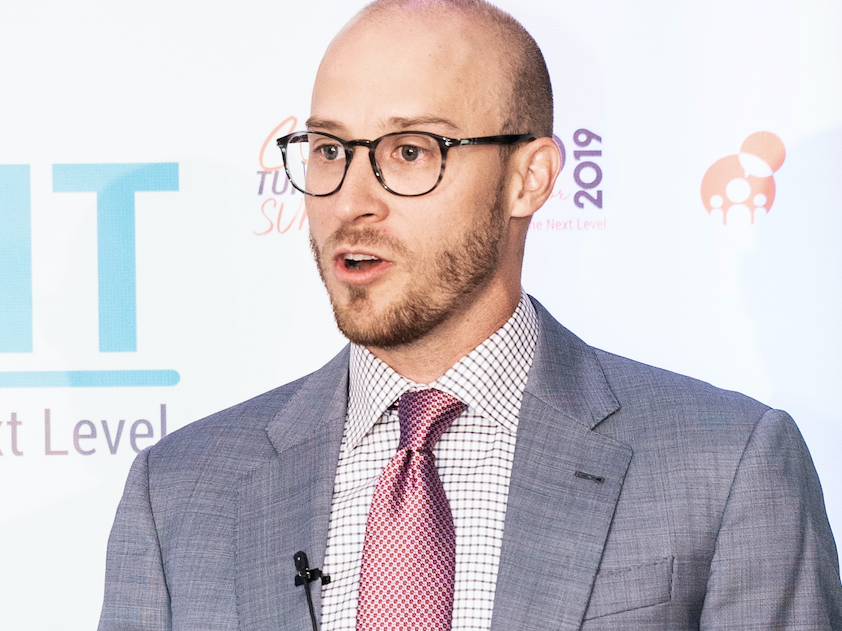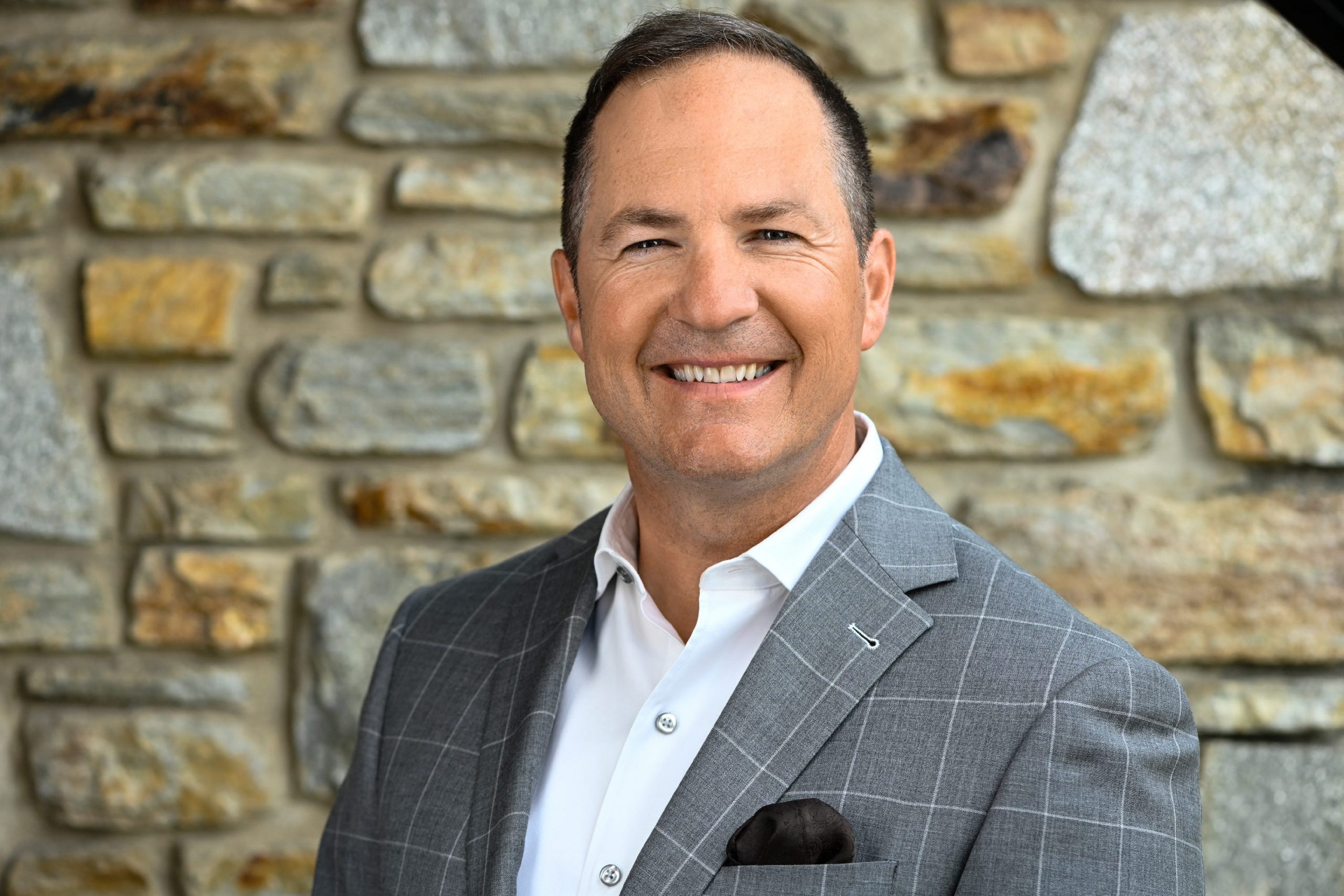
- Some childcare centers are still having a hard time finding enough staff to meet demand.
- One childcare CEO and a lead toddler-level teacher said they've seen people leave for opportunities at school districts.
- Another CEO told Insider that they've recently been able to hire more teachers and assistants.
Ted Hockenberry knew that once the economy began to reopen and vaccines started rolling out, demand for childcare would pick up and he would need to hire more teachers.
Hockenberry is CEO of Children of America, a daycare and childcare provider which has 59 preschools primarily in the Northeast and Midwest. And he badly needs staff.
Children of America stayed open during the pandemic, but enrollment plummeted from 7,500 students before the pandemic, which meant cuts to staff, along with quits. Enrollment dropped both because of capacity limits and because of a period when it was forced to only accept the children of essential workers. From about 1,600 employees before the pandemic, it hit a low of 500 before recovering to 1,100. Hockenberry says hundreds of jobs need to be filled.
Convincing workers to sign on has been even harder than he imagined.
He tried sign-on bonuses and increased pay, but he told Insider he's competing for talent against not just other childcare centers, but also public schools and businesses of all kinds – as well as with the wider labor shortage and still-present fear of Covid-19.
Hockenberry said the situation is "beyond a shortage" and instead "at a critical point." He added that there's a waiting list of students needing childcare, in some cases six months long, because the demand is "outpacing the supply of teachers" and they can only have a certain number of children per teacher. He knows how important the industry is, calling it a "gatekeeper" for some families who need to get back to earning two incomes.
Like other industries, childcare providers are trying their best to find new workers. Their struggles to hire have huge stakes - with less teachers around, the job is harder than ever, and more and more childcare workers are considering leaving the industry altogether. It's not an exaggeration to say the future of childcare is at stake.
Childcare is missing 100,000 workers and there's no guarantee they'll come back
Early education teachers told Insider one main reason they think there's a shortage is because of the low pay. Without adequate staff, daycares can't accept more kids and parents who left jobs because of childcare may continue to struggle to return to work, hamstringing the labor market recovery.

Courtesy of Children of America
Hockenberry said that as demand increased and it was time to call teachers back, some didn't want to because they had already made the transition to other industries or didn't feel safe returning yet. "Between doing this small job and this small job and collecting unemployment," he said of their mindset, "I'm actually making more than I was working with you."
He added that nearby public schools are also facing a teacher shortage and some of his childcare workers with years of experience have left to go work there.
One lead toddler teacher whose name and employer is known to Insider but omitted from this article because she still works there, said she has also seen workers at her preschool leave for positions in elementary and secondary education because of the better pay, incentives, and benefits at local school districts.
With 194,000 jobs added in the US last month - a dismal report compared to previous months in 2021 - child daycare services gained 17,800 jobs. However, childcare employment is down by 108,700 from February 2020.
Workers want higher pay now, but many childcare firms are tied to annual contracts
Employers in childcare increasingly just can't afford to retain their workers.
Hockenberry said that early education schools have always had to compete against other centers and public schools for talent, but now they're competing against other industries as well.
In a recent survey from the nonprofit National Association for the Education of Young Children (NAEYC), 81% of respondents said low pay is a main reason educators leave, and 78% said pay is the main challenge in recruiting. "Compensation remains both the challenge and the solution for staffing recruitment and retention problems," NAEYC wrote.
According to 2020 data from the Bureau of Labor Statistics, childcare workers make a median hourly wage of $12.24, much lower than the median hourly wage for all occupations at $20.17.
The lead toddler teacher who talked to Insider makes $15 an hour in Missouri - and she says that's after a recent raise. She has worked in early childhood education for almost six years. She has, however, been applying for new jobs outside of early education and is particularly interested in an apprenticeship.
She listed several reasons she's looking elsewhere. She wants to better provide for her children, and has had feelings of burnout. She also noted that pay in early education is low, and low staffing has created a difficult, more stressful teaching environment.
"Having done early ed for so long and in a couple of different states, it's pretty standard - the low rates of pay, the lack of benefits, the strenuous nature of it," she said. "So that's doesn't seem like it's going to change anytime soon and since the pandemic doesn't seem like it's letting up, it's maybe just time to make that change."
Hockenberry, like others, said Children of America has tried to attract new talent and compete with competitors by increasing pay and by offering a sign-on bonus of $500, but there's only so much it can do because it can't increase tuition quickly enough. Although they do increase public rates, existing families in the schools are under a contract to pay a certain rate, but there are small annual increases.
"Unlike a restaurant where we could maybe put up the food prices week by week, we can't put up the tuition costs without putting an undue challenge to our parents as fast as we're actually having to pay teachers more," Hockenberry said. "So it's really two tough situations, careening towards each other as we need to recruit, retain, and bring on more teachers."
The lead toddler teacher, who is also a member of NAEYC, said there needs to be political change and reform because childcare centers themselves, especially small ones, can't afford to pay workers more.
"American families can't necessarily afford to pay more for their tuition," she said. "It's already astronomical, and centers can't afford to pay the employees more, but there's a huge discrepancy there and it just needs attention and it needs help."
Beyond higher pay, she said there needs to be better benefits in early education - including paid time off, vacation days, mental health benefits, and medical benefits.
The importance of a message in lean times
Richard "Richie" Huffman, founder and CEO of Celebree School, said his early childhood education franchisor is seeing a spike in enrollments. After enrollment dropped from about 90% capacity before the pandemic to 40% once the pandemic hit, he thinks that by the end of October they can "easily" reach 90% again.
Huffman said his firm is "extremely aggressive on attracting the best talent available along with a really strong message of why you should come work for us." For instance, Celebree has done radio ads to promote the job opportunities at the school.

Courtesy of Celebree School
Celebree School has 26 locally owned locations in Maryland and Delaware. Huffman said that from August to September, when he talked to Insider for this article, his company interviewed 285 candidates and hired over 140 as lead teachers and assistants. He said many applicants had reached out to and about a quarter of the new hires had come from employee referrals.
Huffman said some firms will find the labor shortage "a short-term issue" and the way through for struggling companies is to figure out a consistent "message" for employees.
Hiring issues aside, Hockenberry said the job is great for those who want to make a difference in the early stages of children's lives.
"It's pretty rewarding to know that when you are working with those kids, they are blank canvases and you could make a huge difference in their lives," Hockenberry said. "And I think the biggest thing that people that want to get in the industry have to think about is whether they could be that person. And if they can be that person, it's a very rewarding experience."
Hockenberry says it's clear that employers across industries are struggling.
"The labor force is just under duress," he said. "It doesn't matter really what type of job it is. I think everybody's having a really hard time recruiting quality employees to actually come to work."

